|
by Thad Falkner, Head of School As adults, we remember the sorrow and other deep emotions felt from the terrorist attacks that occurred on September 11, 2001. With Saturday marking 20 years since this tragedy, part of our attention is with reflection. Being parents, our attention probably also is with asking ourselves, how -or even if- we should talk to our children about 9/11.
Keeping in mind the span of developmental stages from PK to 6th grade, I’ll organize my advice based on departments of the school.
If you introduce this topic or find yourself in a position to respond because your child asks a question, experts suggest using brief statements- “September 11th is the same date that a tragedy happened, and it makes people sad to think about it.” For many children, this is enough information. If the discussion goes further, you might want to share that there were many heroes who helped and lots of people did things to support others. Keep in mind that young children may or may not show emotions that we normally attach to the subject (i.e. being solemn).
While the developmental age of your child comes into play, there are a couple points which ring true for all ages. Be an active listener; you’ll glean a lot about how much to discuss by following your child’s lead. I’ll end with this important point, all children benefit from the reassurance of hearing that they are safe. Additional resources:
0 Comments
by Andrea Ruth, Assistant Head of School At Wilson, it always starts with our mission. This is especially true in our work with diversity because we want our students to have a respect for and value of differences in people and points of view. Diversity exists in the languages we speak, the colors of our skin, our gender and age, the traditions we observe, the structures of our families, the financial and educational resources in our families, and the special talents and needs we may have. We believe our heritage, beliefs, and choices of expression help to define us as individuals and that our commitment to learning about one another and the larger world unites us as a community. One of our methods is to honor commemorative months in our program. We also have the goal of communicating such activities to our families.
With all grades (in person for PK-1st, and via recorded virtual sessions for all other grades), the meaning and importance of Hispanic Heritage Month were shared during library classes, using a world map with younger grades to help them visualize where we live and where Spanish-speaking countries are located. Immigrants and immigrant communities and the value they bring to the US and our art and culture were discussed. A variety of literature was shared with students:
Additionally, SK looked at Hispanic countries and their flags on a world map and then replicated flags of these countries. First and third grades learned about the Mexican holiday, El Dia de Los Muertos, discussing how the holiday focuses on the importance of heritage, culture, and remembrance and honoring of loved ones who have passed on. Different foods, celebrations, costumes, and music were explored. Fifth and sixth grades watched a Lincoln Center concert of the Villalobos Brothers. Finally, a banner was created and displayed in front of the school. The Wilson School is proud to celebrate National Hispanic Heritage Month! by Thad Falkner, Head of School Among the many concerns for our society during the pandemic is the effect that virtual learning will have on our children. Research shows that students in a normal year already experience a “summer slide” in knowledge retention after summer vacation. Given that, it is reasonable to be concerned that students whose school year was disrupted by a sudden, unplanned transition to virtual learning might suffer from a learning gap. Such a gap would not only have a negative impact on their ability to learn at the appropriate level when they return to school, but would also potentially affect their long-term academic success.
As a parent, educator, and citizen, I remain concerned about this for our wider community and world. However, I am thankful to report that, at Wilson, we believe we have successfully met this challenge and that our students are learning at their traditional levels this fall. For example, we evaluated our 5th and 6th grade students using a standardized test from the same publisher we use for our traditional spring standardized tests. This allowed us to reliably compare each class’s performance to their previous performance, to a standard Wilson class’s performance, as well as to national norms for other independent elementary schools. I am proud to share that not only did they not lose ground, but that both the 5th and 6th grade classes improved from their expected scores. This is an amazing testimony to the collaborative work of the Wilson community over the past few months! So, how did we do this? I could enthusiastically speak at length on this, but I will share a few highlights for the sake of brevity.
Finally, I can’t help but think that our commitment to excellence and growth, which stretches back more than a century, fostered the resilience needed to navigate such a difficult time with such success. I am grateful to have been a part of that, and I hope you are, too. by Thad Falkner, Head of School At Wilson, we strive to make our school motto, Make Your Mark A Good One (MYMAGO), a way of life. Each year we choose one of our nine MYMAGO themes to focus on as a community, and this year’s is Being Courageous. Courage is not the absence of fear but rather the willingness to act in spite of our fear. So why and how do we equip our children to be courageous?
The “why” of equipping students to be courageous may seem obvious; the people we admire most and who have changed our world for the better are very often characterized by courage. We want our kids to stand up for what they believe, even when that seems daunting. However, being courageous isn’t just for those big moments. Courage is also integral to making the day-to-day decisions and taking the risks necessary to grow in all aspects of life, including social and academic. When we give students the opportunity to try (and, importantly, fail at) things that seem frightening, they develop resilience and confidence. So, how do we do this at Wilson? There are too many ways to name them all, but following are a few that come to mind:
Make Your Mark A Good One by Being Courageous can be something kids practice at home, too. Children often assume that adults don’t get scared like they do, or that acting in the face of difficulty is easier when you’re older. You can share with them developmentally appropriate examples of when you had to be courageous. You can also recognize and praise progress as they work to be courageous, whether it’s in learning to ride a bike, read a book aloud, or initiate a conversation with a new friend. I’m looking forward to growing in courage with the Wilson community this year! For further reading: by Megan Philip, Admissions and Communications Associate If you’re a college football fan (or even if you’re not!) you know that the Ohio State Buckeyes went undefeated in the 2019 regular season in one of the nation’s toughest football conferences, the Big 10. What you may not know is that one of their wide receivers is a proud Wilson grad. Christopher Booker (Wilson ‘10, John Burroughs School ‘16) may now be part of one of college athletics’ most storied programs, but the road there was not an easy one.
After winning a high school state championship with JBS in 2015, Chris began his college career at the University of Dayton. After transferring to The Ohio State University, he played the 2018 season for their club football team, where he was named a first-team All-American by the National Club Football Association. In 2019 he achieved the rare distinction of earning a walk-on spot on the Division I team. This accomplishment came on the heels of an extraordinarily difficult year for his family, in the wake of his beloved brother Nick’s sudden death in the fall of 2018. Chris was kind enough to take some time away from his rigorous practice schedule to speak with our Head of School about the motivation and experiences behind his success as a scholar-athlete and the role Wilson played in developing them. We’re honored to share some of those thoughts with you below. -Find something you’re passionate about “I look for something I can hang my hat on and that I can do something good with.” Chris strives to act as both an inspiration and a role model to those around him. -Then do it for a reason “This is where the grit, and the passion, comes from. Never do something unless you know why you’re doing it.” -”Your best opponent is yourself: How good can you be? The amount of work you have to put in to be great is always more than you think. You have to value the hard work.” Which leads to... -”It’s my goal to be the hardest working player on the field- to give the most effort on every play and opportunity I get.” Chris credits his family and his teachers at Wilson for instilling this in him. -”Remain humble. It’s not hard to do that when you’ve gone to Wilson, because they teach you to think and to look on a grander scale at the world, to view knowledge as a tool that can also benefit those around you. I learned all of that at Wilson. My time at Burroughs was great, and they teach you those things, too, but I learned the essential foundations at Wilson, and I don’t think the rest would have been possible without that.” |
PublicationsWilson in the NewsNews Categories
All
|

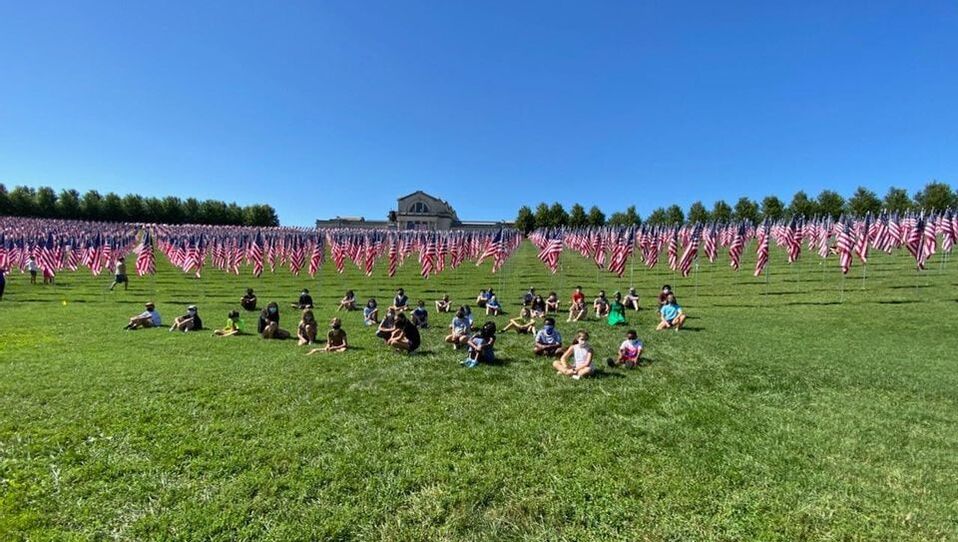
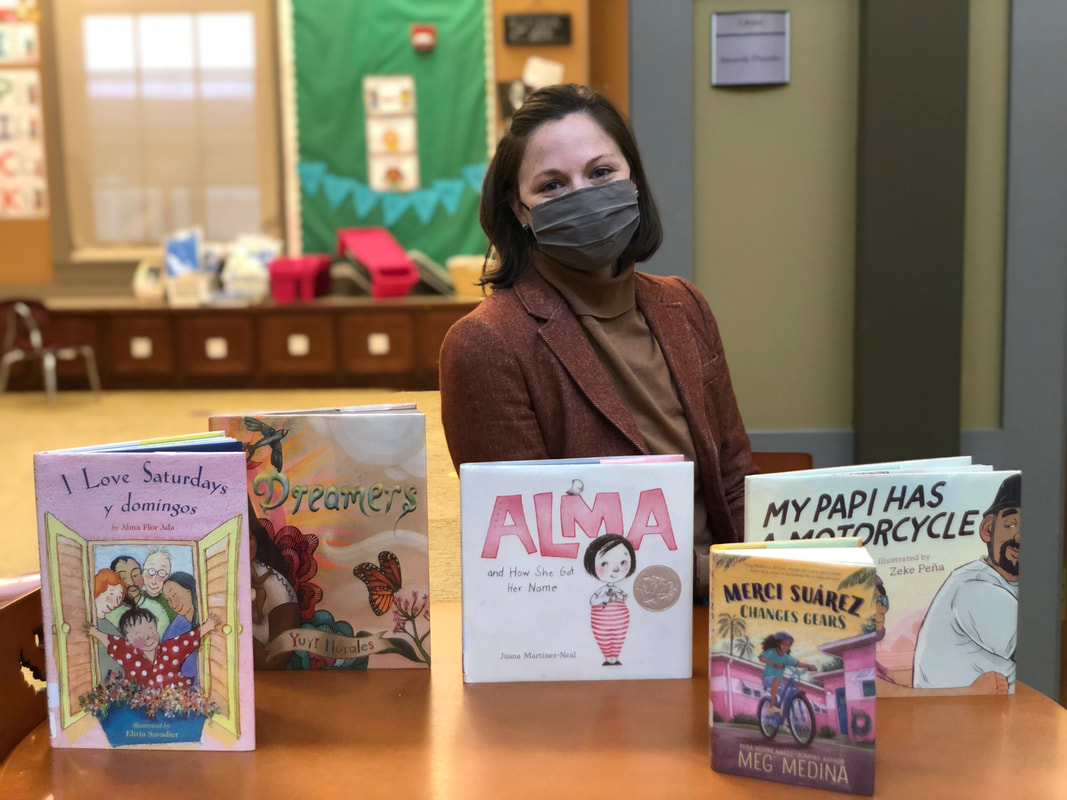
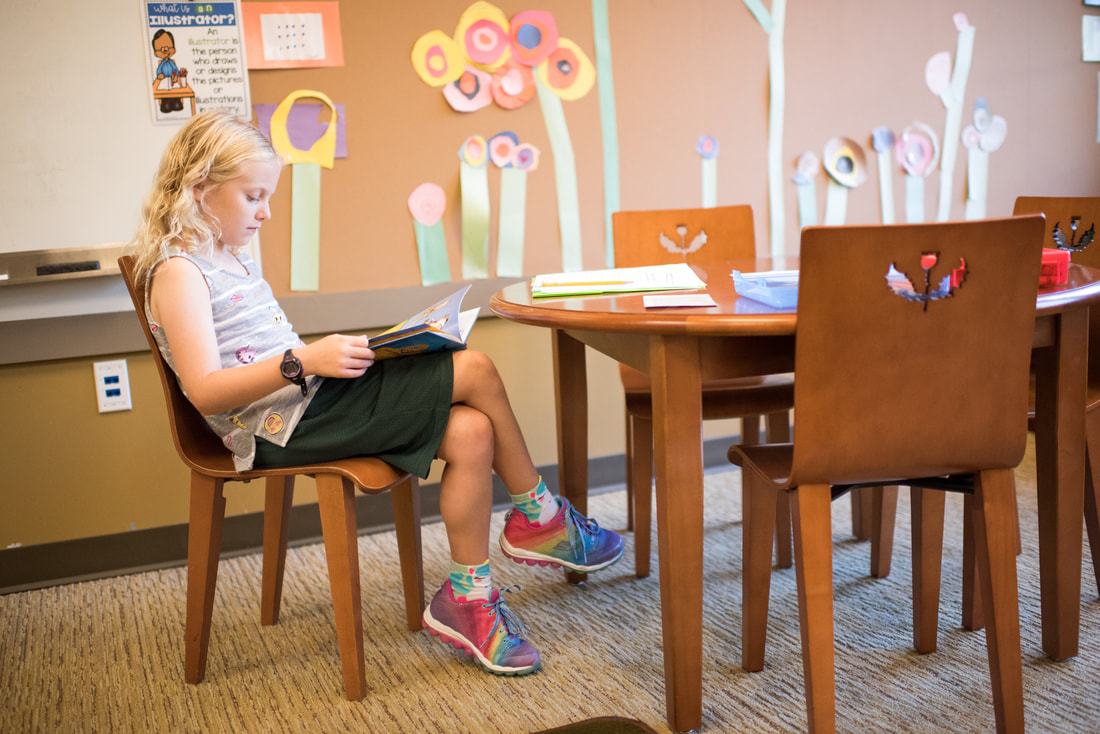
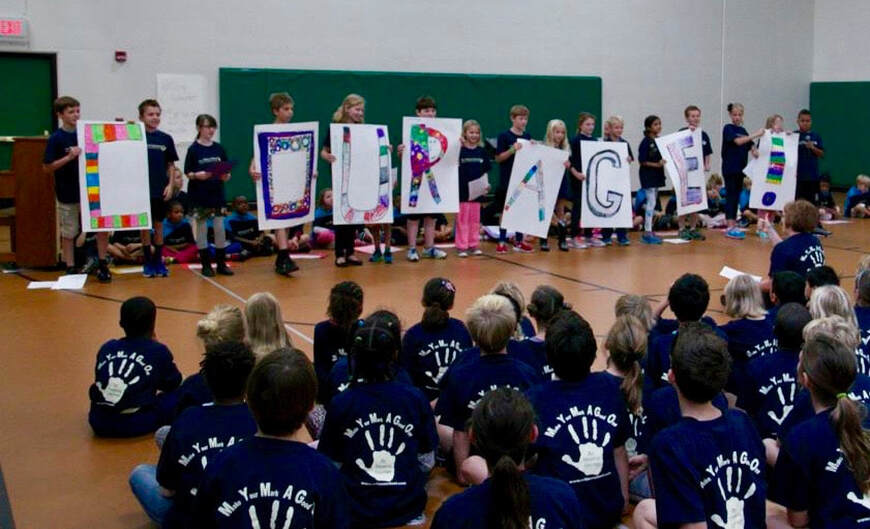
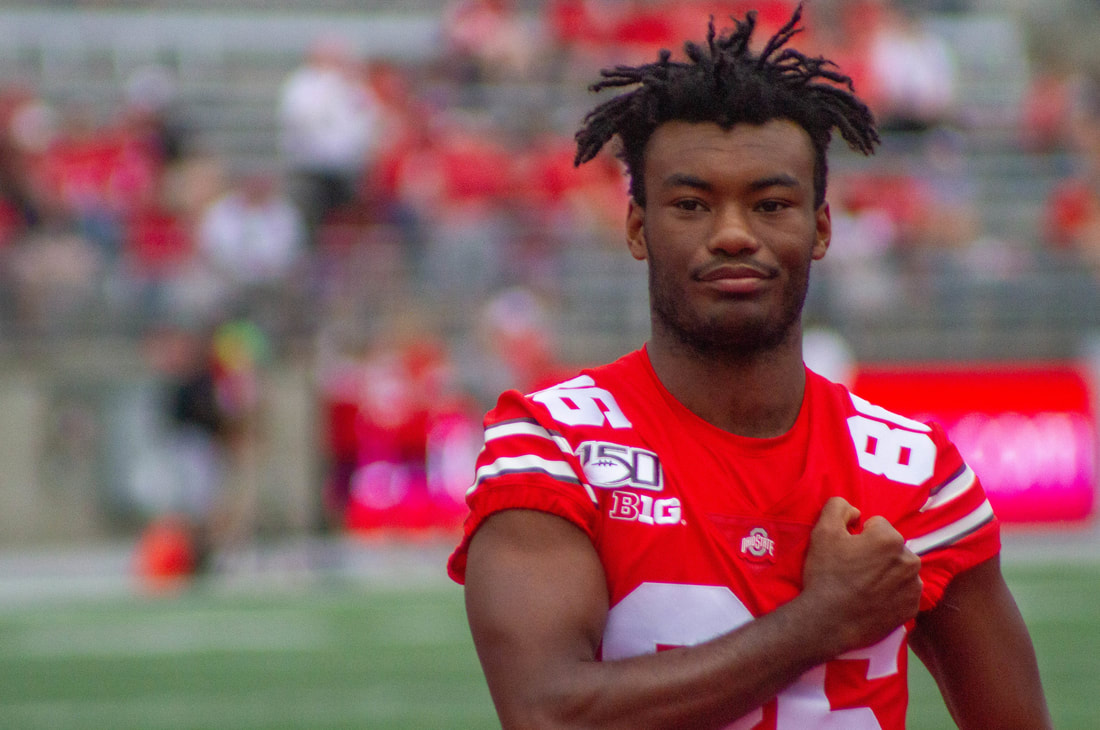
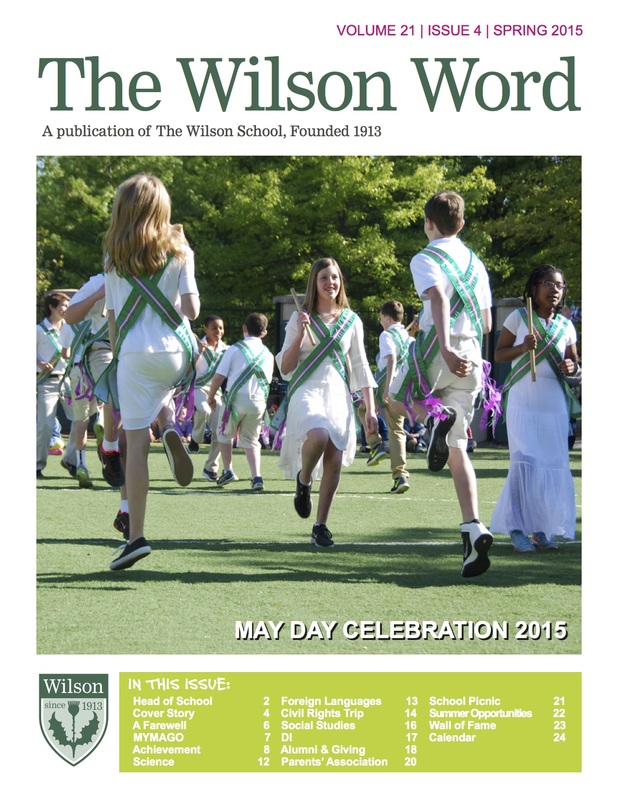
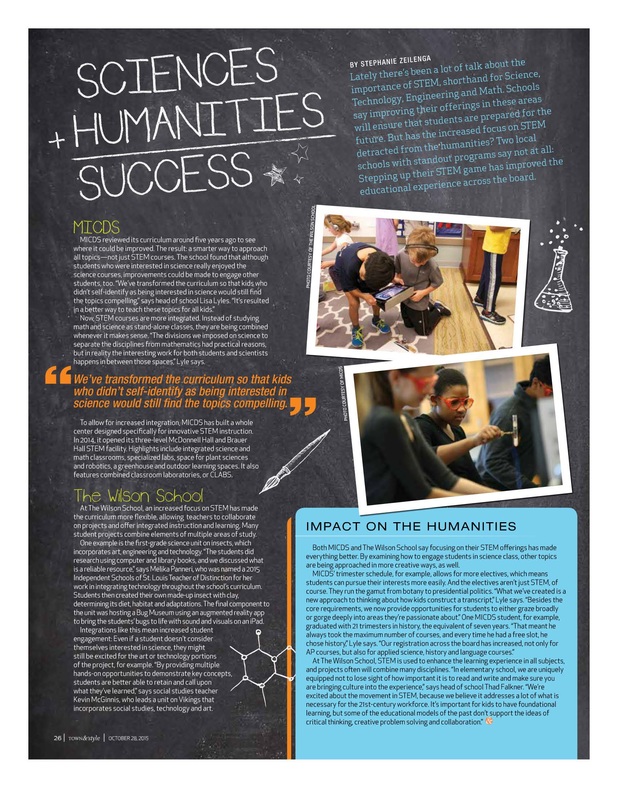
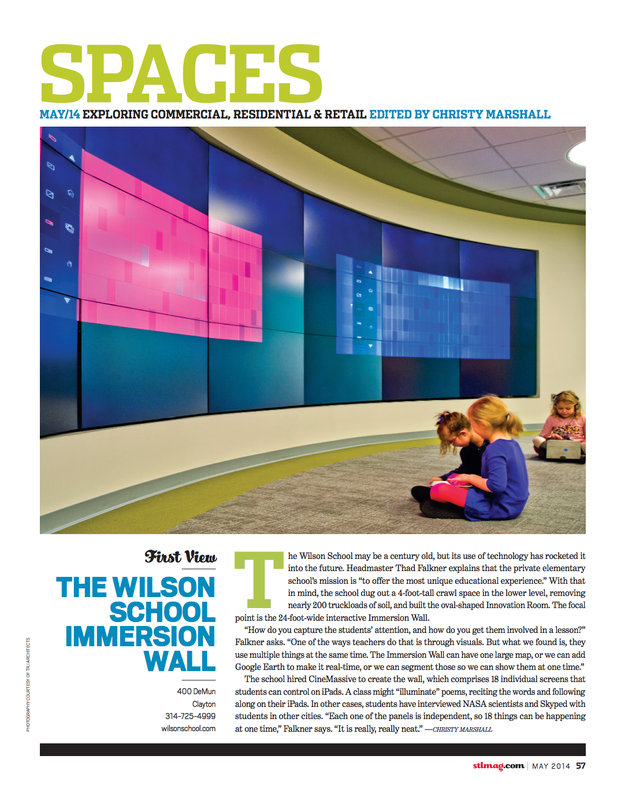
 RSS Feed
RSS Feed
